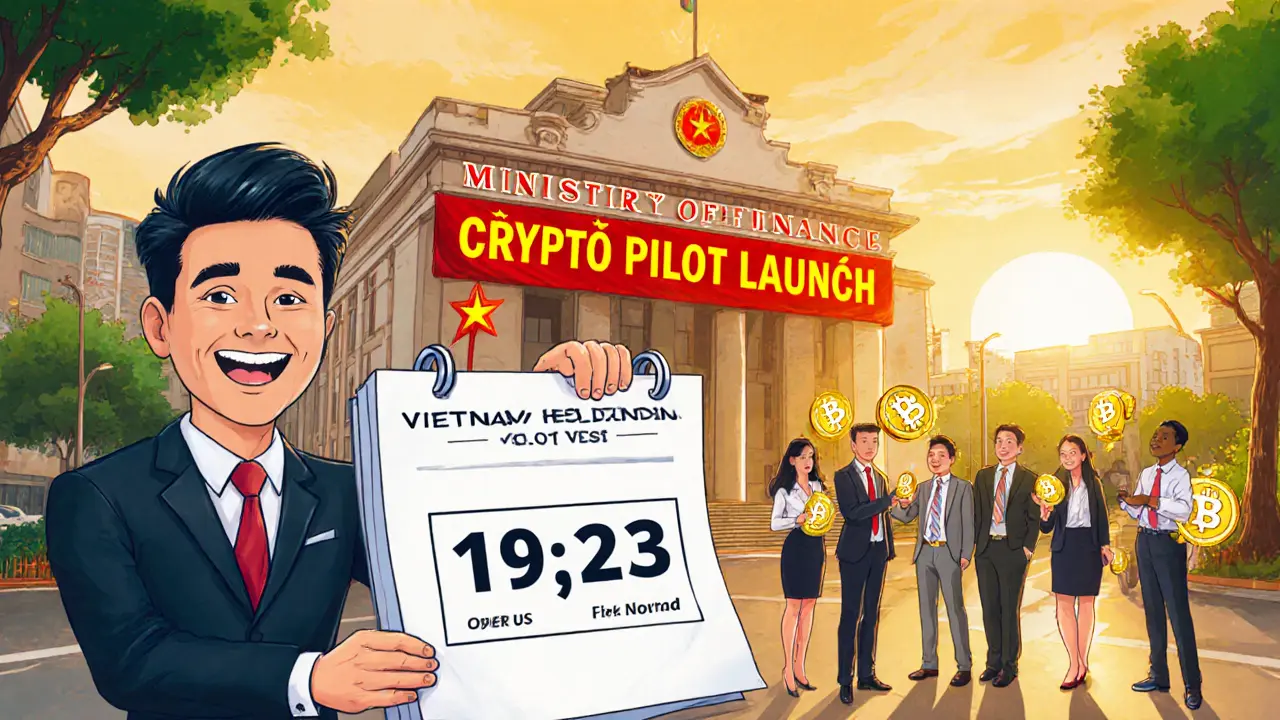Crypto Licensing Vietnam: How to Get a Crypto License in Vietnam
When working with crypto licensing Vietnam, the legal framework that lets businesses issue, trade, or provide services for digital assets in Vietnam. Also known as Vietnam crypto license, it sits at the intersection of finance, technology, and government policy.
One of the most important related entities is Vietnam cryptocurrency regulation, the set of laws and guidelines issued by the State Bank of Vietnam and other authorities that define what is allowed in the crypto space. This regulation directly shapes the licensing process, dictating which activities need a permit and which are prohibited. Another key player is the State Bank of Vietnam, the central bank that oversees monetary policy and supervises digital asset service providers. Its directives influence everything from capital requirements to reporting standards.
A crypto exchange looking to launch in Vietnam must secure a crypto exchange license, an official permit that validates the platform’s compliance with anti‑money‑laundering (AML), know‑your‑customer (KYC), and cybersecurity rules. Without it, even a technically sound platform cannot operate legally. Finally, digital asset compliance, the ongoing obligations around reporting, tax, and user protection that licensed entities must meet, ensures the market stays trustworthy.
Key Steps and Requirements
First, map your business model to the categories defined in Vietnam cryptocurrency regulation. If you plan to offer trading, custodial services, or token issuance, each line of business triggers a specific set of licensing criteria. Next, prepare the documentation required by the State Bank of Vietnam: corporate registration, proof of capital, board biographies, and a detailed risk‑management plan. The bank also asks for a robust KYC compliance framework, which includes identity verification, transaction monitoring, and record‑keeping protocols.
The application itself is submitted through the Ministry of Planning and Investment portal, where you upload the required files and pay a processing fee. After submission, the authorities run a compliance review – this is where digital asset compliance becomes critical. They will assess your AML policies, data security measures, and the transparency of your tokenomics. Expect a back‑and‑forth of clarifications; responding quickly can shave weeks off the timeline.
Once approved, you receive the crypto exchange license, which is valid for three years. Renewal requires an updated compliance report and proof that you’ve met all tax obligations for the previous period. Speaking of tax, Vietnam treats crypto gains as taxable income, so you must integrate a tax reporting module into your platform. Failure to do so can lead to fines or revocation of the license.
Many newcomers wonder whether they can fast‑track the process by partnering with a local entity. While a local partnership can help navigate bureaucratic nuances, the licensing authority still expects the primary applicant to meet all capital and compliance thresholds. In practice, the most efficient path is to hire a local legal counsel who specializes in fintech regulation.
Another common pitfall is underestimating the KYC compliance workload. The State Bank of Vietnam requires real‑time verification against national ID databases, and any lapse can trigger a suspension. Investing in an automated KYC solution that integrates directly with Vietnamese identity services can save both time and money.
Beyond the core licensing steps, consider the broader ecosystem. The rise of DeFi projects in Vietnam means regulators are watching for activities that bypass traditional exchanges. If your platform plans to support decentralized protocols, you’ll need an additional layer of compliance, often referred to as a DeFi‑specific endorsement from the State Bank.
In summary, crypto licensing Vietnam is a multi‑stage journey that blends legal paperwork, financial safeguards, and tech‑driven compliance. By understanding how Vietnam cryptocurrency regulation, the State Bank of Vietnam, crypto exchange licensing, and digital asset compliance interact, you can chart a smoother path to market entry. The articles below break down each component in detail, offering actionable tips and real‑world examples to help you move from concept to a fully licensed operation.


